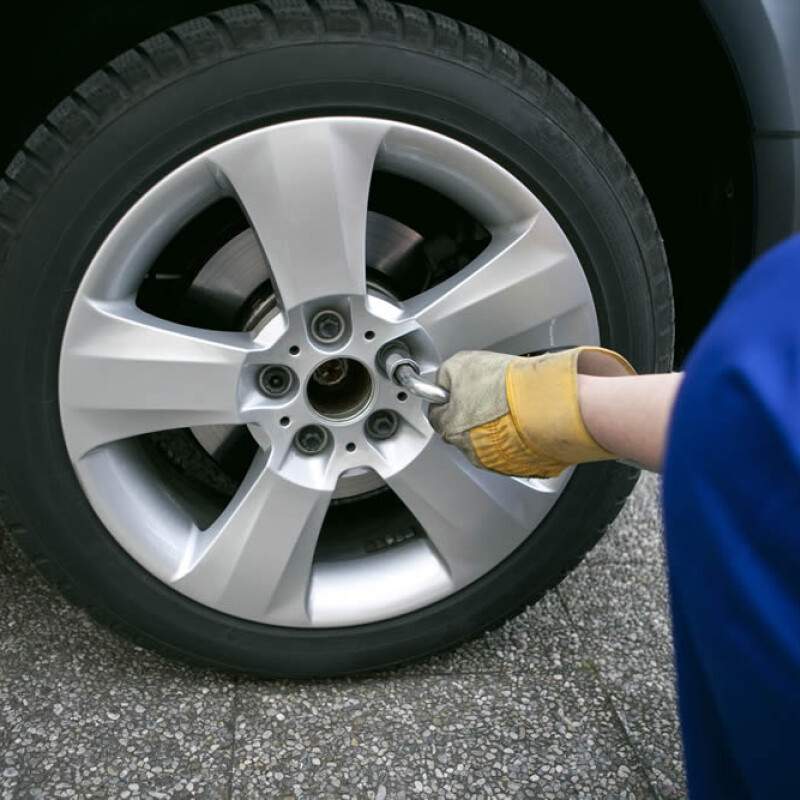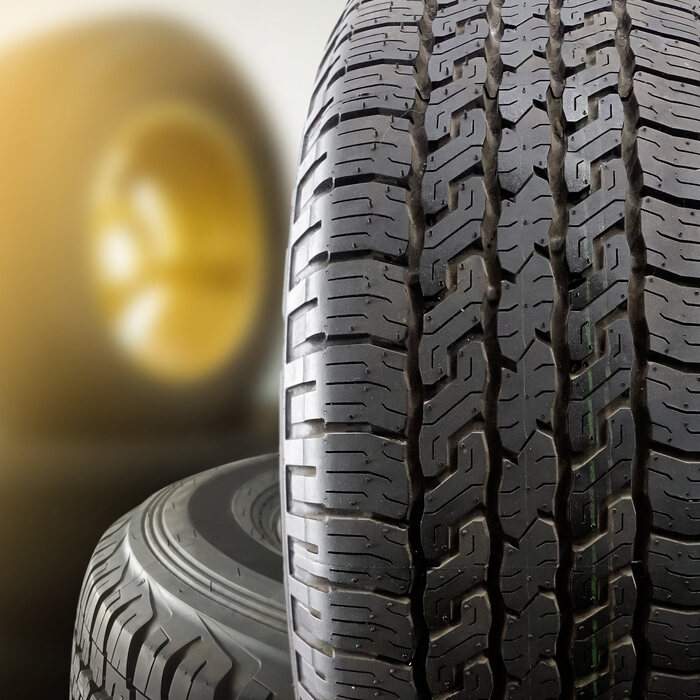Summer Tyres in Winter
Why shouldn't you use summer tyres in winter?
In the UK cars are fitted with summer tyres as standard, and many people only change them when they're worn out and pushing the minimum legal tread depth (1.6mm). But many people don't consider the time of year when they're buying new sets of tyres, or even know that seasonal tyres are important for optimal performance, safety and efficiency. And while summer tyres are great for the warmer months, there are some very good reasons to switch to winter tyres when temperatures start to fall.
In this post we're going to look at the difference between summer and winter tyres, and reveal why it's important to have the right tyres for the right season, and driving conditions.
Winter tyres vs summer tyres - what's the difference?
Tyres designed for summer and winter tyres differ in a few ways. Perhaps the main point to remember is that summer tyres perform best above 7 degrees celsius, while winter tyres perform better below 7 degrees celsius.
They're also made from different rubber compounds. Summer tyres are made from a fairly hard compound that prevents them from getting soft in warmer temperatures. Winter tyres have a higher rubber content, helping them to remain supple in cold weather.
Summer tyres are more fuel-efficient as they create less friction, while winter tyres feature thousands of grooves called sipes to increase grip and help prevent aquaplaning. Summer tyres use tread bars to prevent aquaplaning and have a block-shaped tread pattern to aid handling. Winter tyres feature a cavity to improve grip in snowy conditions.
Summer and winter tyres are designed for specific conditions and each performs best in those conditions. But using them at the wrong times of year compromises safety, performance and efficiency.
Why using summer tyres in winter is a problem
Many of our customers ask 'Are summer tyres OK in winter?' and our answer has to be, 'Not really, no.' Why not? Because they can cause:
Tyre wear and damage
Because of the harder compound summer tyres are made of, their rubber can become stiff in cold temperatures and this can lead to cracking as the tyre loses its elasticity. The thread block can also start to chip off - tyres with this damage need replacing immediately. Stiff tyres also compromise grip, which we'll discuss more now.
Poor traction and handling
We've mentioned the different tread that tyres made for summer and winter have, and this tread can be problematic in the wrong season. While the shallower tread of summer tyres is fine for driving in dry conditions and rain, it's much less effective in ice and snow. This is where the tread block cavity of winter tyres comes in handy, where slush and snow gathers and actually creates more traction with the snow on the road.
Because summer tyres don't have this feature they compact the snow, making the contact area more slippery. This of course means it's more dangerous to use summer tyres in winter, in the UK and numerous other countries that regularly see snowy and icy roads. In fact, many EU countries make it a legal requirement to have suitable tyres for each season.
Long braking distances
Summer tyres are known to have lower rolling resistance (briefly, the effort needed to keep a tyre rolling), which is good in warm weather as it can save fuel, but not so good in winter. When driving on ice or snow you need more rolling resistance, so in these conditions summer tyres equate to longer braking distances.
Slow acceleration
Again, because summer tyres have less rolling resistance and less grip, they can't accelerate as fast as winter tyres. So if you don't have the right tyres for cold weather, you'll be off to a slow start from standing.
Can you mix summer and winter tyres?
It's not illegal to mix summer and winter tyres in the UK, but it's not safe to do so we would advise against it. If you want to drive as safely as possible, all your tyres need to be suitable for the current conditions.
What about all-season tyres?
An all-season tyre is a popular compromise between summer and winter tyres. All-season tyres perform better than summer tyres in cold conditions, but winter tyres provide evren more traction, so are the best choice in extreme winter conditions.
Do you need winter tyres in the UK?
It's important to have the right tyres for the right weather conditions. Summer tyres in winter are a bad choice when you're faced with colder temperatures, icy conditions and snowy roads. They just won't perform as well in winter conditions as winter tyres, which are designed for that exact purpose.
Equally, winter tyres in summer should be avoided because they'll lead to worse fuel economy, they'll wear faster in ambient temperatures and cost you more money at the pump because of their greater rolling resistance.
Find the right seasonal tyres for your vehicle
Visit our dedicated pages to learn more about the best winter tyres and summer tyres for your vehicle. Add your registration number on either of those pages for personalised recommendations of the safest, best performance tyres for your vehicle for the summer and winter months.
If you know what you want, you can buy your tyres online, or speak to the team to ask our experts’ advice.
Tyre Puncture Repairs
If you find yourself with a flat tyre, it may be due to a puncture, where an object has either punctured the tyre or an object has embedded itself in the tread of the tyre. All puncture repairs are carried...
Learn More
How to store tyres correctly
If you need to store tyres for any reason - such as if you’ve bought new tyres for future use, or removed seasonal tyres - it’s important to store them correctly. Correctly storing tyres will ensure they don’t suffer unnecessary...
Learn More


 Same Day Fitting. Order By 10:30am
Same Day Fitting. Order By 10:30am
 39 Nationwide Fitting Centres
39 Nationwide Fitting Centres
 5 Year Warranty On All Tyres
5 Year Warranty On All Tyres
 Price Check Promise. Always Great Deals
Price Check Promise. Always Great Deals

 Find a Centre
Find a Centre


